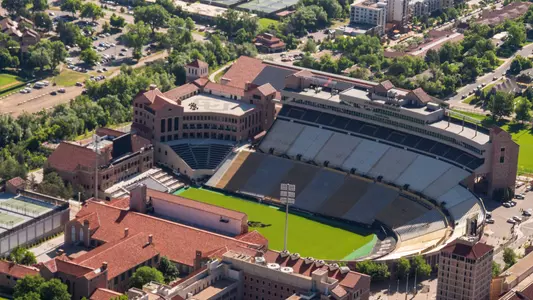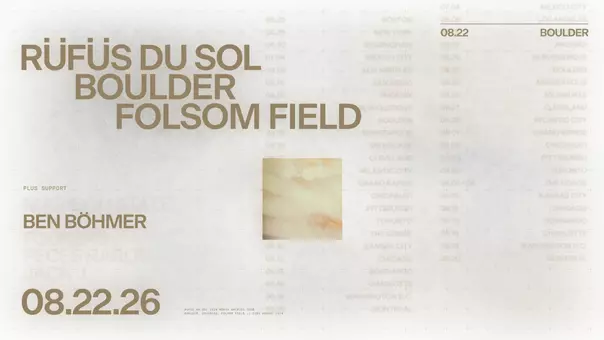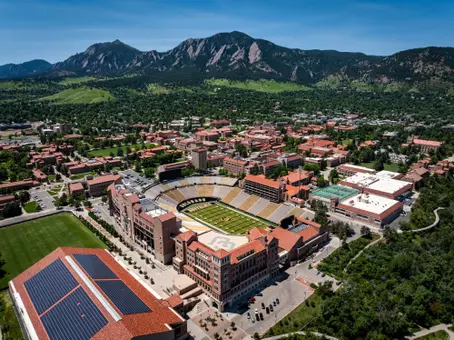Colorado University Athletics

Student-Athlete Mental Well-Being A Priority For CU Athletics
March 24, 2017 | General, Neill Woelk, Psychological Health & Performance
BOULDER — The day before the annual Colorado spring football game, roughly 150 people gathered at the CU Champions Center to pay tribute to former Buff Rashaan Salaam.
Salaam, the 1994 Heisman Trophy winner, took his own life in early December. It was an event that stunned not only the close-knit CU community, but athletic departments across the nation.
But if there was any silver lining to the tragic cloud of Salaam's death, it is that it provided another reminder, a learning moment that may serve to be one more piece of Salaam's proud legacy at CU: the mental health of current, past and future student-athletes at Colorado must always be an integral part of the equation.
"Every situation — even something as tragic as Rashaan's death — can produce something positive," CU Associate Athletic Director/Business Development Lance Carl said. "What this situation reminded us of is that we can never be satisfied with asking, 'Are we doing enough?'
"We have to ask ourselves regularly, 'What more can we do?' How do we use the resources we have to continue to develop and refine a strategy that ensures we are giving our student-athletes the best support possible — not only when they are here, but when they leave."
Colorado is already considered to be among the nation's leaders in the area of student-athletes and mental health. CU is one of a handful of athletic departments to have an in-house sports psychologist, Dr. Chris Bader, and CU Associate Athletic Director for Health and Performance Miguel Rueda is continuously studying ways to implement mental health care into the daily practices of CU's sports medicine and performance continuum.
The two recently took part in a community symposium to discuss the CU Athletic Department's approach, which relies on a collaborative approach throughout the department.
"I don't have the answer, our psychologist doesn't have the answer, our physicians doesn't have the answer, our dietitians don't have the answer," Rueda said. "But together we can help solve the problem. It's a community approach to helping athletes with issues regarding identity, sport and mental health, and it succeeds because we have a great collaborative group that communicates."
Still, tragedies such as Salaam's death are a reminder to CU officials that they must always be searching for ways to not only address the needs of current student athletes, but also continue to reach out to former Buffs.
"What is clear is that we have a lot of different layers here and we see it as an important piece to our student-athletes' overall health," Carl said. "What we are always doing is exploring new and innovative ways to utilize all those resources. We have our high-performance center, we have in-house counseling, we have the Alumni C-Club and we have Buffs4Life (an alumni group separate from the athletic department).
"All those things offer the opportunity for us to develop networking, mentoring, partnerships — a variety of things that can help our current student-athletes connect with former athletes. We utilize their experience and wisdom, and at the same time, they have an avenue of staying connected with us."
Connecting current athletes with former athletes gives CU students another "voice" in their lives. Along with hearing advice from coaches and administrators, they have the chance to hear and share the experiences of people who know what they face because they lived that life.
Meanwhile, CU continues to reach out to former athletes — including those who may be experiencing difficulty. In that arena, Buffs4Life has been particularly valuable.
While technically not associated with the athletic department or university, Buffs4Life is a tight-knit group of former athletes, coaches and administrators that formed several years ago to lend a helping hand to former Buffs. Carl currently serves on the group's board of directors.
"With me being here in the athletic department and being on the board, it's a natural bridge for us," Carl said. "We originally formed Buffs4Life for a specific reason: to benefit former Buffs in their time of need, whether it be financial, spiritual or emotional. We have a multitude of resources at hand and can use those in a lot of ways, and that's one thing I stressed last week to the guys who were here (for the Salaam tribute). If we can help you directly, we will — but if we can't, there's someone in Buff Nation who can support and help you."
But CU Athletic Department personnel also know one of the best approaches in health is preventative. It's why they have committed so much time and energy to helping current student-athletes feel comfortable with addressing all health needs.
"They're learning that it's OK to put your trust in someone else and let them help you do the right thing," Carl said. "Our long-term goal here is to benefit them far beyond the time they compete here for us. Our true mission is to educate and prepare them to be the best, most-productive adult they can be and have success in whatever they choose to pursue.
"You play a finite number of Saturdays when you are here. We know that. But the tools we equip them with when they are here will help them be productive the rest of their lives. It is incumbent upon us to do that, and that's what we are doing our best to do — every day."
Contact: Neill.Woelk@Colorado.edu





